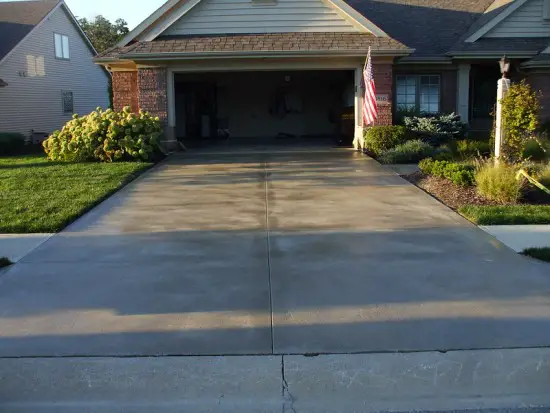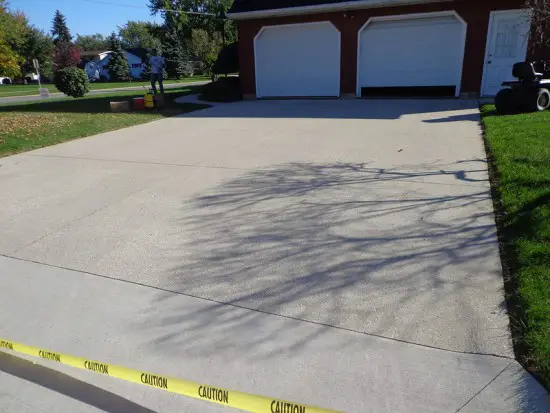My driveway is a mess. When I first bought my house, the driveway was in great condition. But now it’s full of cracks and potholes that can’t be fixed with any kind of sealer or resurfacer.
So what should I do? This post will explore the pros and cons of sealing concrete driveways to help you decide if this is the right decision for your home!

Table of Contents
What Are Pros And Cons Of Sealing Concrete Driveway?
Some Great Advantages Of Sealer
Sealing concrete driveway brings unexpected benefits. In the beginning, although having some doubts, I have never regretted my decision. Let me show you what sealer can do for your driveway.
Moisture Repellency
Water, such as rainwater, can seep into the concrete and disrupt the structure of your driveway. That’s when a sealer becomes more useful than ever.
I have found that it prevents mold or moss on the surface, resists moisture, and increases the driveway’s life.
Stain Resistance
By chance, I discovered this excellent use of sealer. It can protect the driveway from oil-based contaminants such as grease, engine oil, or organic pollutants.
I also tried pouring some drinks or food on the floor. The results satisfy me. However, I think you should clean up the dirty area as soon as possible to avoid permanent stains.
Appearance Maintenance Or Enhancement
You will notice this use of sealer as soon as the construction is completed. Sealing the concrete road makes the surface shiny and prevents fading. If you use colored concrete, the sealer accentuates the color of the gouache. My driveway becomes more sparkling in the sun.
The Downside Of Sealing Concrete Driveway
To be honest, I suffered from a few bad experiences with sealers. Check out my experiences below for more information.
Slippery Surface
The sealer reduces friction, which I consider to be the most significant inconvenience of this design. The surface quickly becomes slippery when wet.
I have inquired with several construction contractors about this situation. They suggested adding a grit additive to increase adhesion to my driveway. It is good advice to solve this problem thoroughly.
Regular Maintenance
To keep the sealer working correctly, you should perform regular maintenance. I have to clean the floor every 2-3 months. If there is dirt, remove it immediately.

The most crucial step is to reapply. Maintenance time depends on vehicle traffic on the driveways. I do this every two years when the floor shows signs of discoloration.
Non-eco-friendly Material
Most sealers usually contain some toxic ingredients to increase water repellency and stain resistance. The construction process can become dangerous if you are not adequately equipped. It also takes some time for the concrete to dry completely.
Is Sealing Concrete Driveways Worth Your Money?
Undoubtedly, the big answer is YES. I have never regretted sealing concrete driveway even though it has some disadvantages. A high-quality sealer can keep the surface clean and durable.
I highly recommend this design for homes in harsh weather conditions. Please refer to my experiences carefully before starting to build, apply some of my tips to limit inconveniences, and save money later on.
In Conclusion
If you are considering sealing your concrete driveway, it is important to understand the pros and cons of sealing concrete driveway before making a decision.
We hope this post has provided you with enough information about the different factors that affect what type of sealer might be best for you.
Related Post:
- Seriously, My Floor Is Sticky Even After Mopping – How to Fix?
- Best Way To Clean Floors Without A Mop – Excellent Tips
- How to Clean Painted Concrete Floors: Easy Way to Clean Painted Floor
- How To Remove Wood Stain From Concrete – Problem Solved!
Image by Decorative Concrete Kingdom
